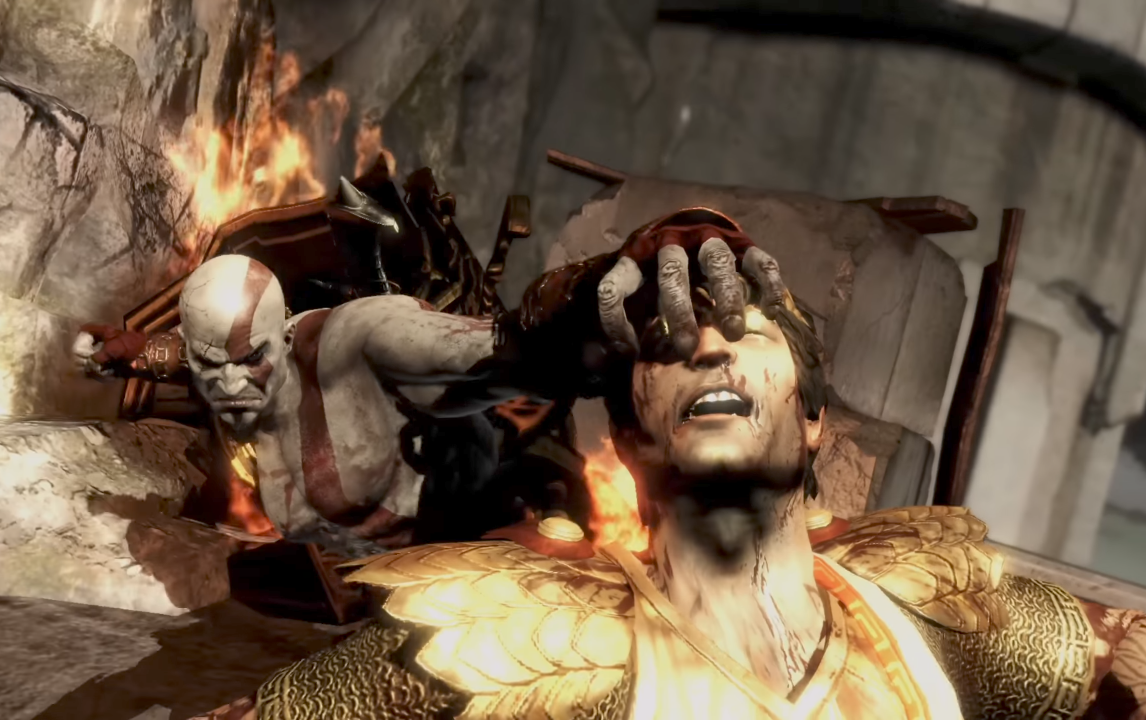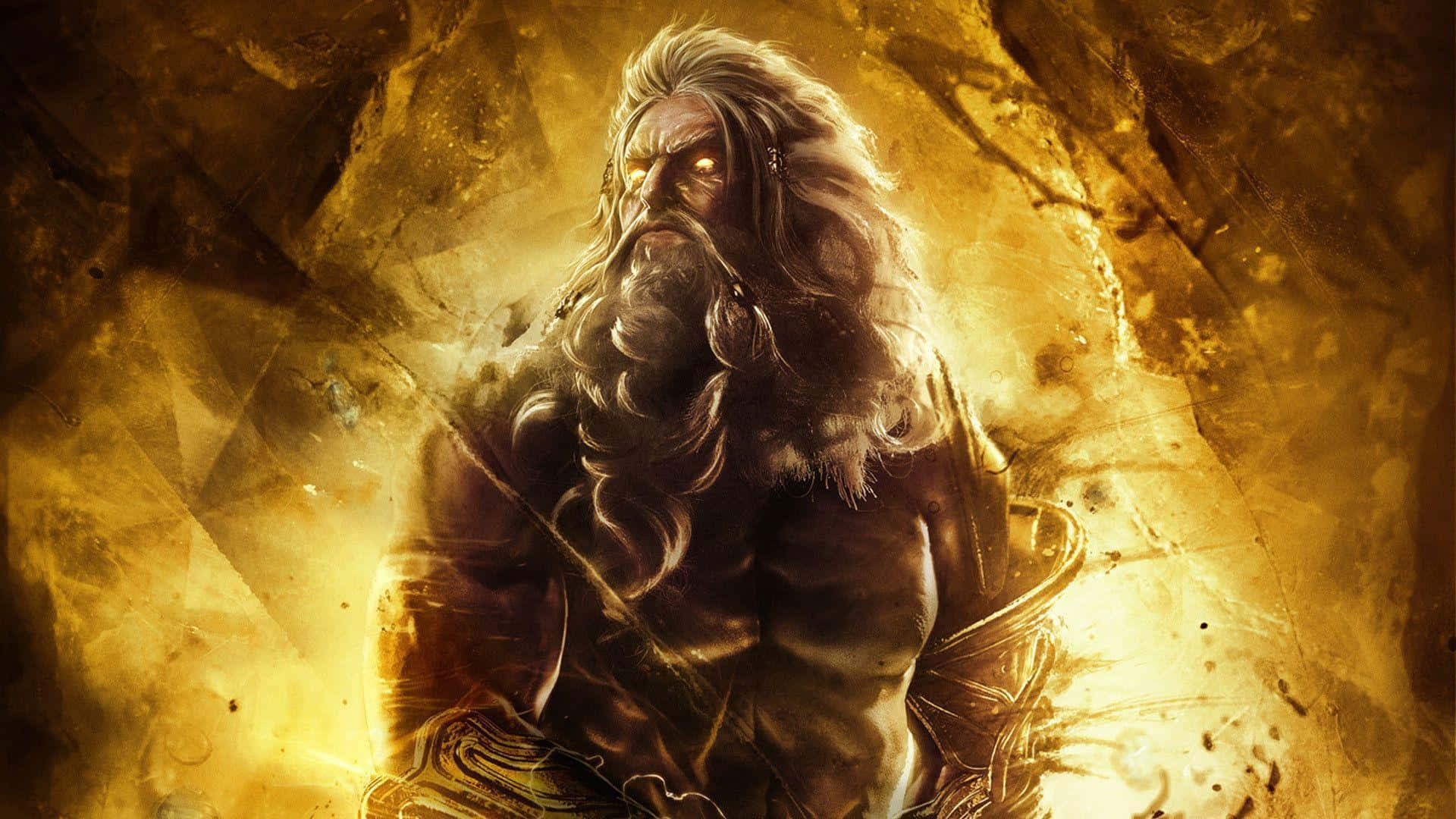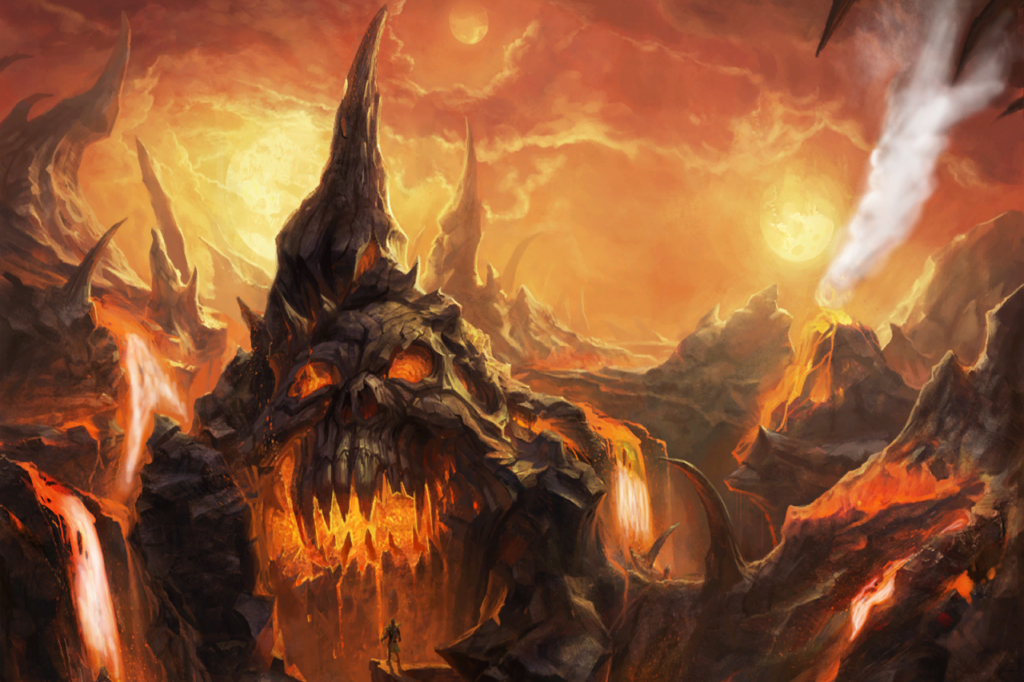Introduction
Kratos, once a Spartan warrior, became the terrifying nightmare Olympus could no longer contain. In this blog, we unravel the truth that took root in the hearts of the gods — what fear held even the mighty Olympians back from facing Kratos head-on? We’ll explore how that fear crept into the minds of Poseidon, Hades, Zeus, and others, until Olympus finally crumbled under the weight of its own paranoia.
Posiedon
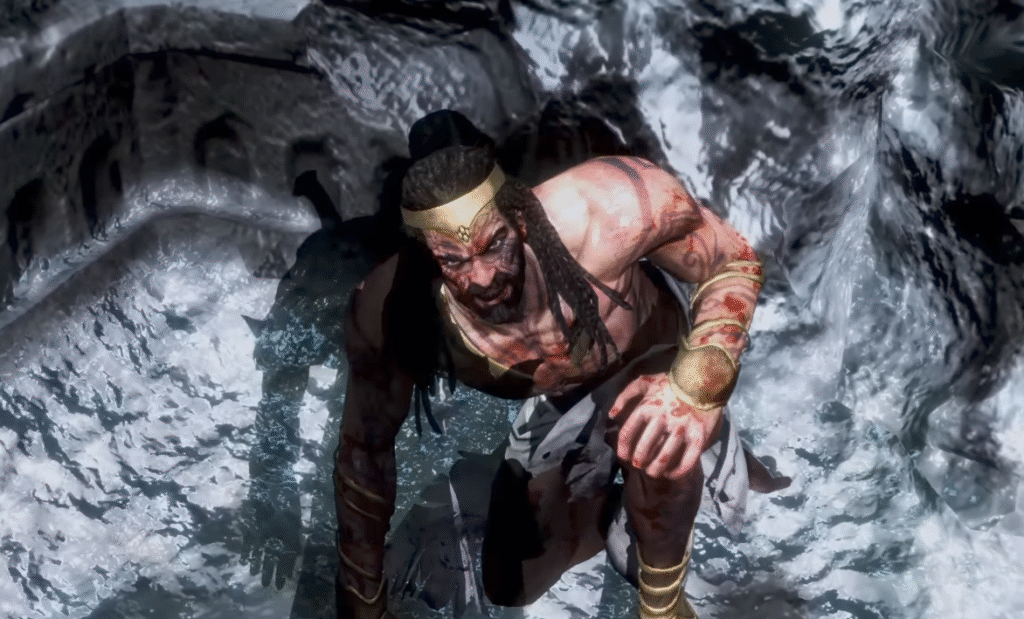
Poseidon, the god of the ocean, first showed tension toward Kratos in Ghost of Sparta. After Kratos desecrated his underwater kingdom, Poseidon warned him that this affront would not go unanswered.
By the time they face each other in God of War III, Poseidon hides behind water beasts and tidal waves. Kratos calls him out with a sharp line: “A true warrior does not hide, Poseidon.” That moment makes it clear the sea god fears facing Kratos head-on. When Kratos rips him from his monstrous water form, the fear becomes undeniable. Poseidon suffers one of the most brutal deaths in the game — and in his final moments, he feels something he once believed only mortals could: true fear.
Hades
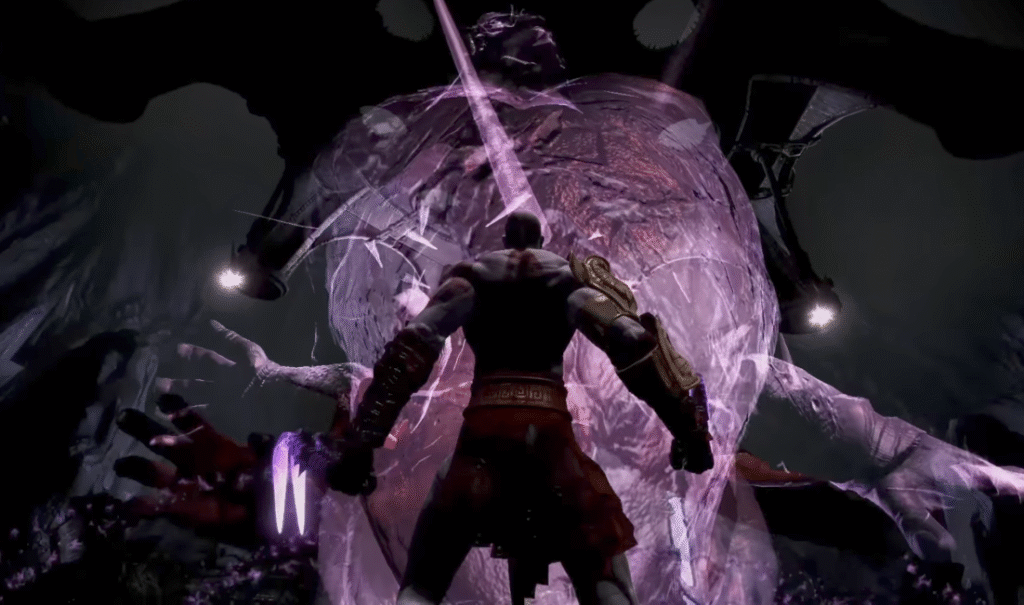
Hades ruled the Underworld with iron chains and brutal authority. He hated Kratos for the death of his wife, Persephone. But beyond vengeance, Hades knew something far more dangerous —Kratos had already killed gods and escaped death itself. That fact alone planted doubt… and doubt breeds fear. In God of War III, Hades first speaks to Kratos only through his voice, choosing not to reveal himself. Kratos calls him out without hesitation:
“Show yourself, Hades… or face me, coward.” That line marks a shift in power death itself was hiding.
When the fight begins, Hades unleashes souls, shadows, and his vicious Claws of Hades. But Kratos does the unthinkable: he rips the soul out of death itself. In the end, Hades is dragged into the abyss, his throne shattered, and his spirit reduced to just another soul in the realm he once ruled.
Helios
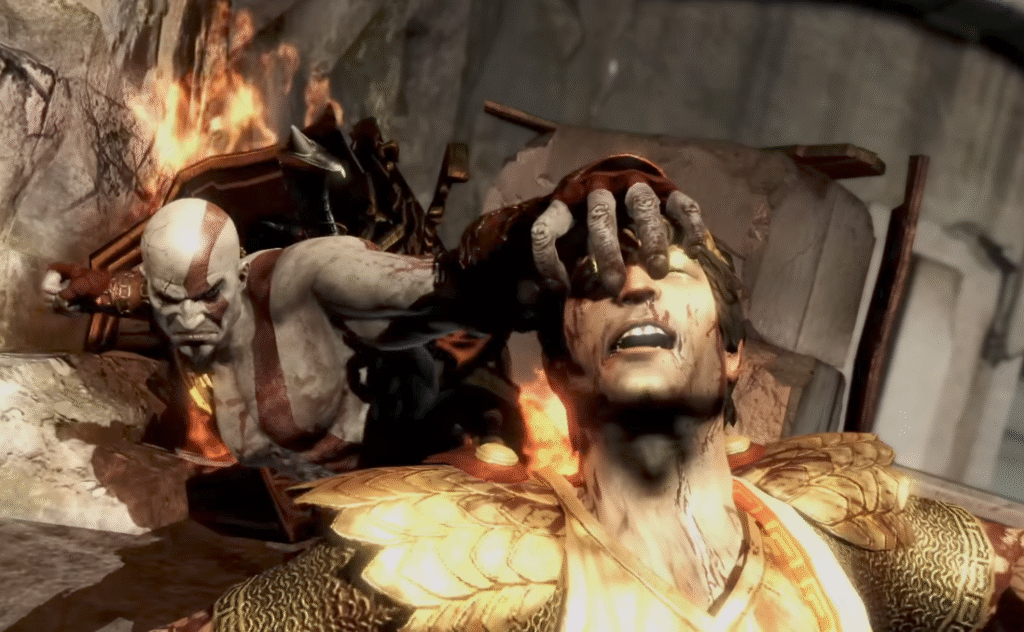
Helios, the sun god once saved by Kratos in Chain of Olympus, likely held a sense of respect for the Spartan. But in God of War III, after being brutally beaten by the Titan (Perses), he lay broken and desperate. The fear in his eyes was clear as he begged Kratos for help, promising repayment. But there was no fight between them.
Helios was already defeated. Hiding behind a wall of soldiers, too afraid to face Kratos directly, his end wasn’t just death… it was humiliation. A glowing symbol of Olympus crumbling from within.
Hermes

Hermes, the swift messenger of the gods, was never a warrior — he was a runner, a trickster, a messenger. He knew he couldn’t defeat Kratos in direct combat, so he hid behind mockery and misdirection. His taunts weren’t confidence, they were fear in disguise, meant to lure Kratos into a chase. But when the chase ended, so did the act.
Hermes didn’t fight back — he panicked. He stammered, he begged. And when Kratos tore off the very legs he depended on, it wasn’t just his body that broke. His spirit did too. Fear had claimed him long before the Blade of Chaos ever touched him.
Zeus
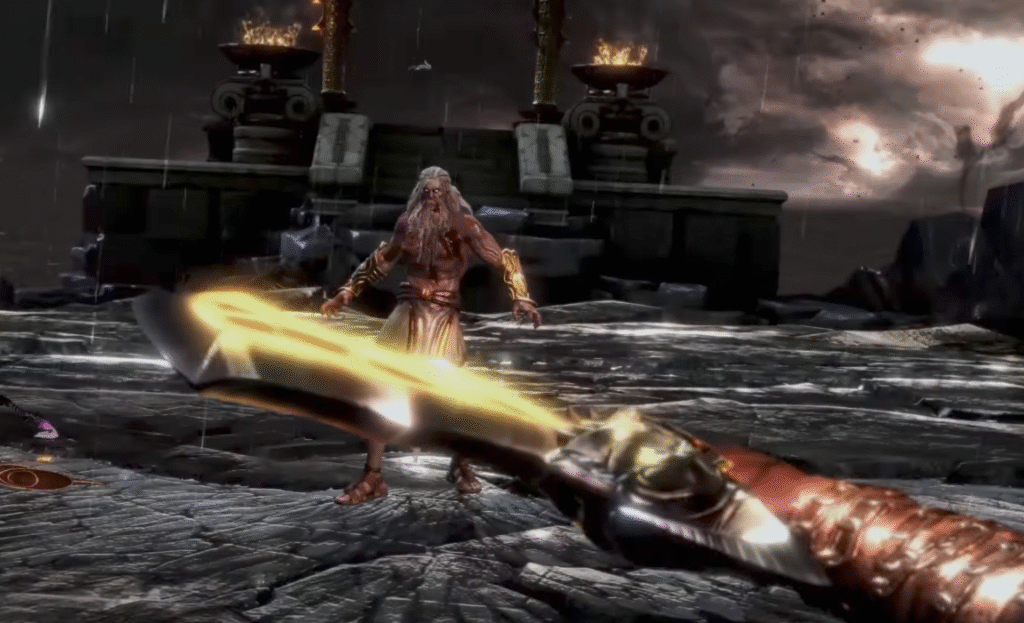
Zeus, the King of Olympus: god of thunder, power, and control—had his first taste of fear when he learned of a prophecy: his downfall would come at the hands of a marked warrior. Terrified, he ordered Ares and Athena to find and eliminate this marked child. But fate had other plans. After Ares fell, Kratos took his place as the new God of War—brutal, defiant, and uncontrollable. Zeus saw his fears manifesting in Kratos’ actions.
In God of War II, Zeus tricked Kratos, draining his powers and luring him into taking up the Blade of Olympus. He offered Kratos a chance to submit—but Kratos refused. Zeus struck him down, thinking the threat was over. But when Kratos returned from death itself and defeated the Sisters of Fate, Zeus knew his fear was real.
By God of War III, that fear was no longer hidden. No grand speeches. No illusion of control. In their final battle, Zeus threw everything he had—power, manipulation, even darkness itself. But Kratos endured, fought through it all, and returned. And when it was over, Zeus died not as a king… but as a god crushed by the fate he tried so desperately to avoid: with fear still in his eyes.
Conclusion
Olympian gods ruled without question — until Kratos made them question everything. Their power couldn’t shield them, their thrones couldn’t protect them, and their immortality couldn’t save them. For the Greek gods, Kratos wasn’t a warrior — he was fear itself.
Image Disclaimer: Images from publicly available gameplay footage. All rights belong to their respective content creators and Santa Monica Studio / Sony Interactive Entertainment.
